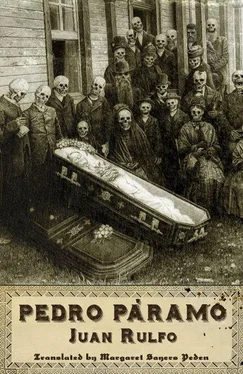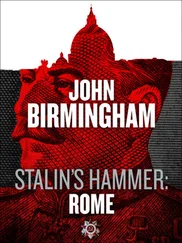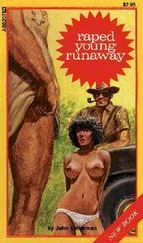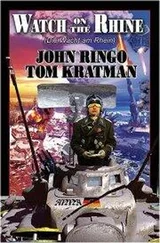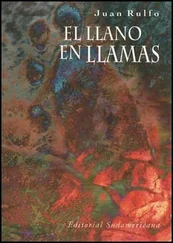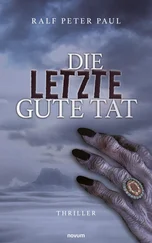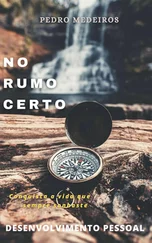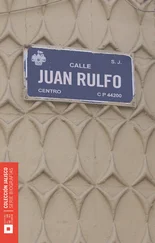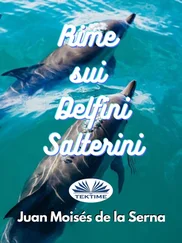“You won’t leave, you perverse and wicked Justina. You’re not going anywhere, because you will never find anyone who loves you the way I do.”
“No, I won’t leave, Susana. I won’t leave. You know I will take care of you. Even though you make me swear I won’t, I will always take care of you.”
She had cared for Susana from the day she was born. She had held her in her arms. She had taught her to walk. To take those first steps that seemed eternal. She had watched her lips and eyes grow sweet as sugar candy. “Mint candy is blue. Yellow and blue. Green and blue. Stirred with spearmint and wintergreen.” She nibbled at her chubby legs. She entertained her by offering her a breast to nurse that had no milk, that was only a toy. “Play with this,” she told Susana. “Play with your own little toy.” She could have hugged her to pieces.
Outside, rain was falling on the banana leaves and water in the puddles sounded as if it were boiling.
The sheets were cold and damp. The drainpipes gurgled and foamed, weary of laboring day and night, day and night. Water kept pouring down, streaming in diluvial burbling.
It was midnight; outside, the sound of the rain blotted out all other sounds.
Susana San Juan woke early. She sat up slowly, then got out of bed. Again she felt the weight in her feet, a heaviness rising up her body, trying to reach her head:
“Is that you, Bartolome?’
She thought she heard the door squeak, as if someone were entering or leaving. And then only the rain, intermittent, cold, rolling down the banana leaves, boiling in its own ferment.
She slept again and did not wake until light was falling on red bricks beaded with moisture in the gray dawn of a new day. She called: “Justina!”
Justina, throwing a shawl around her shoulders, appeared immediately, as if she had been right outside the door.
“What is is, Susana?”
“The cat. The cat’s in here again.”
“My poor Susana.”
She laid her head on Susana’s breast and hugged her until Susana lifted her head and asked “Why are you crying? I’ll tell Pedro Paramo how good you are to me. I won’t tell him anything about how your cat frightens me. Don’t cry, Justina.”
“Your father’s dead, Susana. He died night before last. They came today to say there’s nothing we can do; they’ve already buried him. It was too far to bring his body back here.
You’re all alone now, Susana.”
“Then it was Father,” Susana smiled. “So he came to tell me good-bye,” she said. And smiled.
Many years earlier, when she was just a little girl, he had said one day:
“Climb down, Susana, and tell me what you see.”
She was dangling from a rope that cut into her waist and rubbed her hands raw, but she didn’t want to let go. That rope was the single thread connecting her to the outside world.
“I don’t see anything, papa.”
“Look hard, Susana. See if you don’t see something.”
And he shone the lamp on her.
“I don’t see anything, papa.”
“I’ll lower you a little farther. Let me know when you’re on the bottom.”
She had entered through a small opening in some boards. She had walked over rotted, decaying, splintered planks covered with clayey soil:
“Go a little lower, Susana, and you’ll find what I told you.”
She bumped lower and lower, swaying in the darkness, with her feet swinging in empty space.
“Lower, Susana. A little lower. Tell me if you see anything.”
And when she felt the ground beneath her feet she stood there dumb with fear. The lamplight circled above her and then focused on a spot beside her. The yell from above made her shiver:
“Hand me that, Susana!”
She picked up the skull in both hands, but when the light struck it fully, she dropped it.
“It’s a dead man’s skull,” she said.
“You should find something else there beside it. Hand me whatever’s there.”
The skeleton broke into individual bones: the jawbone fell away as if it were sugar. She handed it up to him, piece after piece, down to the toes, which she handed him joint by joint. The skull had been first, the round ball that had disintegrated in her hands.
“Keep looking, Susana. For money. Round gold coins. Look everywhere, Susana.”
And then she did not remember anything, until days later she came to in the ice: in the ice of her father’s glare.
That was why she was laughing now.
“I knew it was you, Bartolome.”
And poor Justina, weeping on Susana’s bosom, sat up to see what she was laughing about, and why her laughter had turned to wild guffaws.
Outside, it was still raining. The Indians had gone. It was Monday and the valley of Comala was drowning in rain.
The winds continued to blow, day after day. The winds that had brought the rain. The rain was over but the wind remained. There in the fields, tender leaves, dry now, lay flat against the furrows, escaping the wind. By day the wind was bearable; it worried the ivy and rattled the roof tiles; but by night it moaned, it moaned without ceasing. Canopies of clouds swept silently across the sky, so low they seemed to scrape the earth.
Susana San Juan heard the wind lashing against the closed window. She was lying with her arms crossed behind her head, thinking, listening to the night noises: how the night was buffeted by bursts of restless wind. Then the abrupt cessation.
Someone has opened the door. A rush of air blows out the lamp. She sees only darkness, and conscious thought is suspended. She hears faint rustlings. The next moment she hears the erratic beating of her heart. Through closed eyelids she senses the flame of light.
She does not open her eyes. Her hair spills across her face. The light fires drops of sweat on her upper lip. She asks: “Is that you, Father?”
“Yes, I am your father, my child.”
She peers through half-closed eyelids. Her hair seems to be cloaking a shadowy figure on the ceiling, its head looming above her face. Through the haze of her eyelashes a blurred figure takes form. A diffuse light burns in the place of its heart, a tiny heart pulsing like a flickering flame. “Your heart is dying of pain,” Susana thinks. “I know that you’ve come to tell me Florencio is dead, but I already know that. Don’t be sad about anything else; don’t worry about me. I keep my grief hidden in a safe place. Don’t let your heart go out!”
She got out of bed and dragged herself toward Father Renteria.
“Let me console you,” he said, protecting the flame of the candle with his cupped hand, “console you with my own inconsolable sorrow.”
Father Renteria watched as she approached him and encircled the lighted flame with her hands, and then she lowered her face to the burning wick until the smell of burning flesh forced him to jerk the candle away and blow out the flame.
Again in darkness, Susana ran to hide beneath the sheets.
Father Renteria said:
“I have come to comfort you, daughter.”
“Then you may go, Father,” she replied. “Don’t come back. I don’t need you.”
And she listened to the retreating footsteps that had always left a sensation of cold and fear.
“Why do you come see me, when you are dead?”
Father Renteria closed the door and stepped out into the night air.
The wind continued to blow.
A man they called El Tartamudo came to the Media Luna and asked for Pedro Paramo.
“Why do you want to see him?”
“I want to t-talk with him.”
“He isn’t here.”
“T-tell him, when he comes back, that it’s about d-don Fulgor.”
“I’ll go look for him, but you may have to wait a while.”
“T-tell him it’s uh-urgent.”
“I’ll tell him.”
Читать дальше
